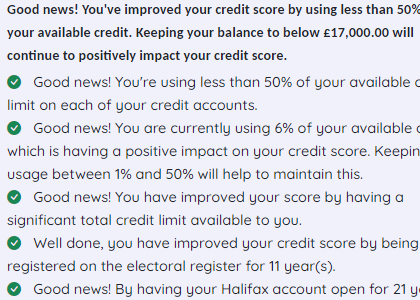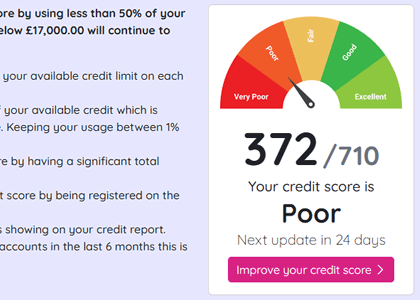Why is My Credit Score Important

26th Feb 2024
Your credit score develops in the background of your finances as you borrow and repay money, reflecting your credit history and financial habits. It’s not something that many of us pay much attention to on a daily basis, and most of us only think about checking our credit score when we are thinking about applying for a mortgage or taking out a loan for a new car. Understanding the factors that influence your credit score and how to take steps to improve your score are positive steps you can take towards a better financial future.
Finding Your Credit Score
The major UK credit reference agencies like Experian, Equifax, and TransUnion, assess your borrowing history and repayment behaviour to come up with your credit score. Credit scores, ranging from 0 to 1,000 depending on the agency, are determined by the information in your report. Although the scales used by each organisation vary, each will also give you a category for your credit score such as fair, average, good or excellent. Your credit score gives you an idea about how lenders might perceive you when you apply for loans, credit cards, mobile phone contracts, or mortgages. People whose credit score is in a good or excellent category will find it easier to get credit than someone who is rated as below average or poor.
Interpreting Your Credit Score
Your credit score serves as a snapshot of your financial relationship, influencing how lenders view your reliability in repaying loans and determining interest rates and credit limits. The financial services companies don’t know you as a person, and only have this credit score to make their decision on. Factors affecting your credit score include payment history, public records such as bankruptcies, credit usage, age of credit accounts, credit limits, electoral roll registration, and how many new account openings you have made over a short period. Some of these factors are more important than others, with bankruptcy and a long history of missing or late payments being the most important things which lenders will look at.
Improving Your Credit Score
Your credit score can fluctuate over time as your finances change, so monitoring it regularly is advised. To improve your credit score, one of the best things you can do is to set up direct debits to ensure bills are always paid on time. Use your current credit responsibly and avoid maxing out credit cards. Although it sounds strange, keeping old accounts you no longer use open can improve your credit score as it shows that you have more credit available than you are using. Try not to make cash withdrawals using credit cards, make sure you are registered to vote and try to avoid very high-interest forms of credit such as payday lending.
Positive changes in spending habits and debt management can contribute to an improved credit score over time, but it might take several months of careful financial management to see the numbers on your credit score start to nudge upwards.
Don't risk missing
something important
Access a comprehensive credit report
that includes detailed data from TransUnion
View your credit score for only £1.95.
You can view it for 1 month, after which it will be £14.95 per month unless cancelled.
See How You Score

See How You Score
An Independent View Of Your Credit Score
Lenders typically use their own systems to calculate your Credit Score based on the information in your Credit Report, often checking with one or more Credit Reference Agencies. Your Credit Check Online Credit Score is derived from all the Credit Report information we gather from TransUnion, helping you understand how you might be assessed when applying for credit.

Understand What is Affecting Your Credit Score
Quickly see how the details in your Credit Report influence your Credit Check Online Credit Score, both positively and negatively. This clear overview helps you identify areas for improvement and better understand the factors that lenders consider when assessing your creditworthiness.
View your credit score for only £1.95.
You can view it for 1 month, after which it will be £14.95 per month unless cancelled.